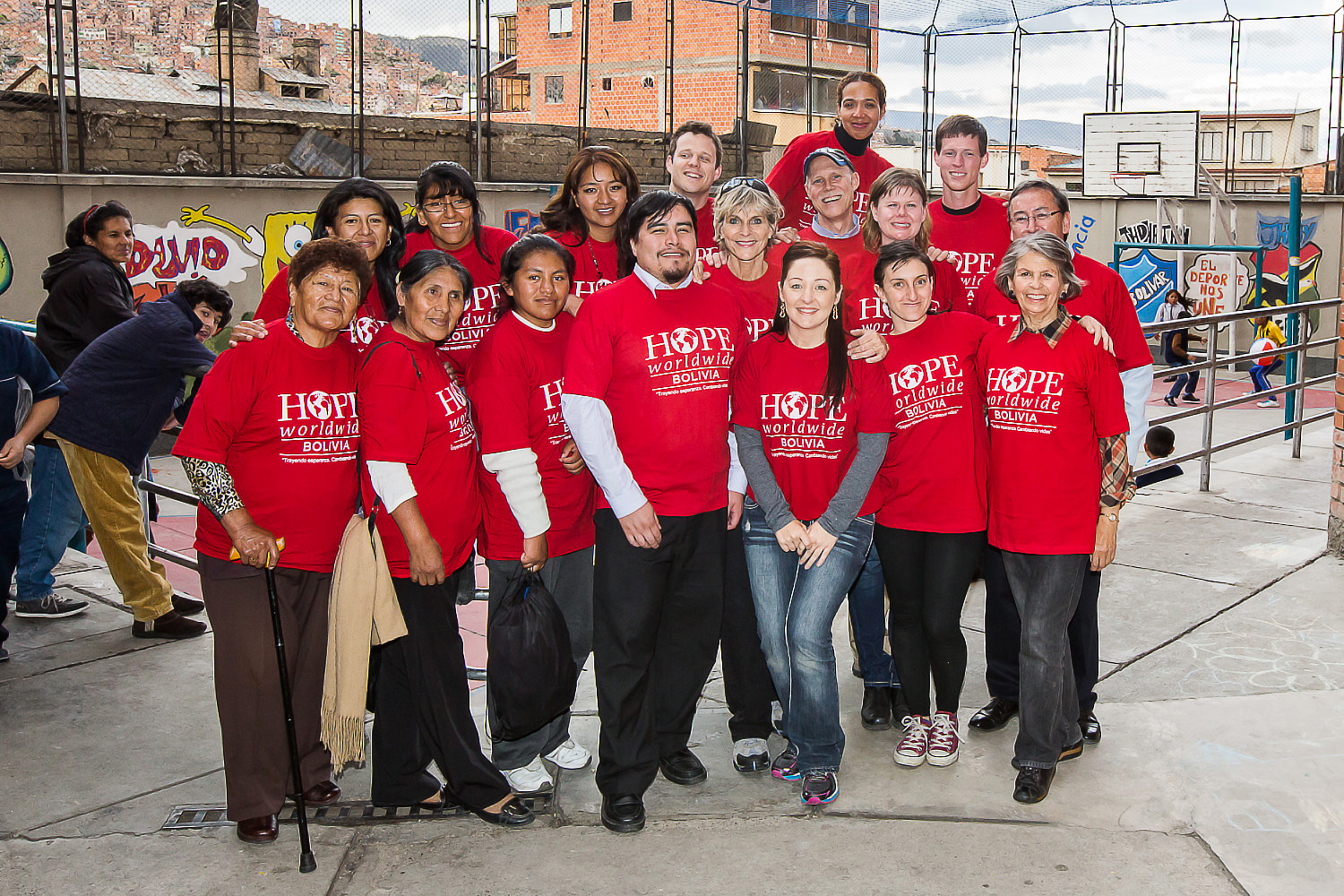HOPE worldwide
Bringing Hope and Changeto the World's Poorest

Since 1991, HOPE worldwide has been delivering sustainable, high-impact, community-based services to the poor and needy. Every year, they serve more than one million of the world's most poor, sick, and suffering, regardless of their religious beliefs, gender, race or ethnic background.
HOPE worldwide's Bolivian affiliate has teamed with Foundation Arco Iris (FAI) to provide healthcare to the neediest of La Paz, a metropolitan area of more than two million. In 2011, HOPE worldwide came to Bolivia at the behest of FAI, who needed help to sustain its 100-bed charity teaching hospital and the 75,000 annual mobile medical visits it provides free to the poor.
Initially, a HOPE team of three nurses and one doctor relocated to live and work permanently in Bolivia. In the years since HOPE worldwide Bolivia has formulated plans to establish a for-profit clinic to provide sustainable funding for on-going free healthcare for the poor; that clinic is slated to open in early 2015.
Project Redwood has opted to support another of HOPE worldwide Bolivia's initiatives, a nurse assistant training program. In its upcoming inaugural session, the program will train ten poor and vulnerable high school graduates as nurses' aides. Over time, this program will help to address La Paz's shortage of nurses and will provide employment opportunities for slum-raised youth with few or no prospects.
HOPE worldwide's affiliate in India actively helps the poor in 22 cities and towns, with a particular focus on the urban poor.
A Project Redwood grant in 2007 supported a maternal and child survival program in two New Delhi slums. Health services and education were provided to mothers and children struggling to survive on a few rupees a day in communities with no waste removal, limited electricity, limited water supply and no healthcare. The United States Agency for International Development matched Project Redwood's grant 3-to-1, resulting in five staffed health outposts, where 60 or more children a day receive immunizations and expectant mothers receive prenatal care.
HOPE worldwide also runs vocational training programs in some of the worst of New Delhi's slums. A Project Redwood grant provided funding for 100 micro-loans to allow graduates of the computer, sewing, and health and beauty schools to start small businesses. The capital pool for the micro-loans can be recycled, at least partly, so the program is semi-sustainable. HOPE worldwide offers financial literacy education in conjunction with the loans.
In another Project Redwood supported initiative, HOPE worldwide established computer learning centers in three Indian government schools, where over 95% of the children come from very poor families, with, on average, 6 members living on about $120 a month. The computer learning centers are used by elementary and high school students during school hours, and by other young people in need before and after school.
For more information, see: http://www.hopeww.org.
GRANT SUMMARY AND PURPOSE
- $20,000 to fund development and pilot implementation of a nurse's assistant training program in La Paz, Bolivia (2014)
- $10,000 to contribute to establishing computer learning centers in three government schools in Jodhpur and Pali, India (2009)
- $25,000 for micro-loans to graduates of vocational training programs in New Delhi (2008)
- $6,000 to for healthcare and health education for expectant mothers and young children in two New Delhi, India slums (2007)